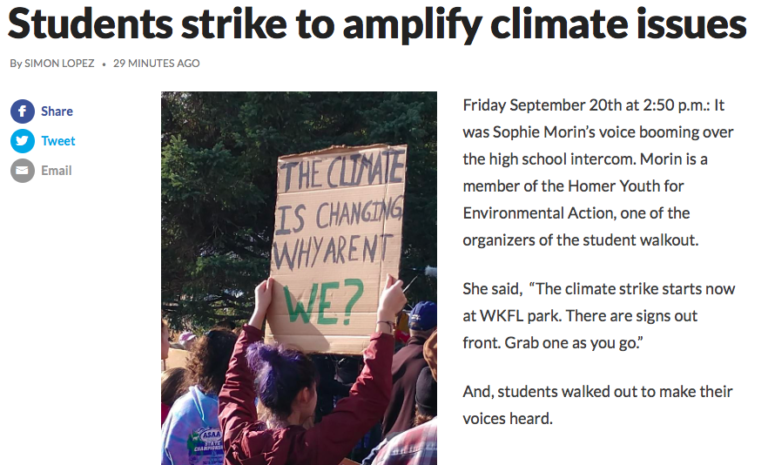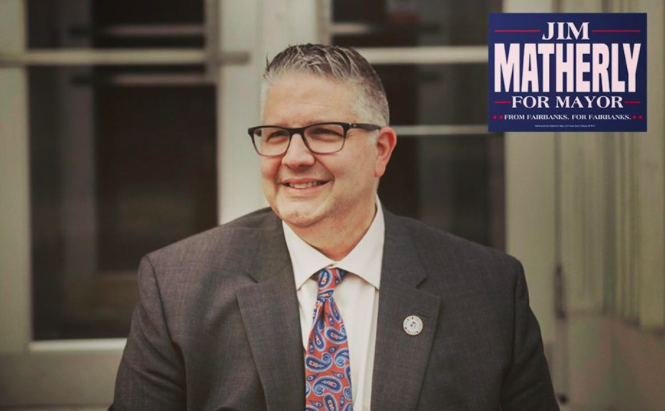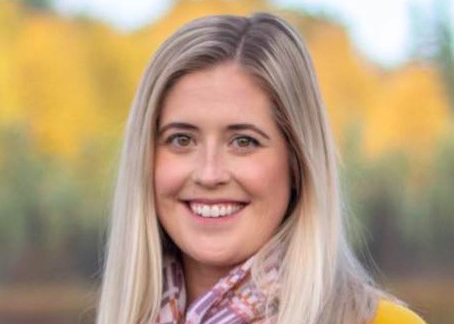MOST WATCHED RACE IN THE STATE FOR OCT. 1
By KOBE RIZK
Incumbent Fairbanks mayor Jim Matherly will face off with Democrat Kathryn Dodge in Fairbanks’ municipal election next week.
The entire state will be watching. Dodge’s campaign represents a growing progressive-left wing of the Golden Heart City’s political landscape.
Must Read Alaska caught up with Mayor Matherly recently to discuss the race and hear his pitch to swing voters unsure of their vote on October 1.
“The stakes are pretty high in my opinion. Fairbanks is a pretty conservative town, and I hope to emulate those conservative values” said Matherly.
The incumbent mayor cited public safety as one of his main priorities should Fairbanks residents elect him to another term. Matherly also cited the opioid epidemic as a pressing problem for the city.
“We need to get back to a fully staffed police force. It’s the only area of the city that’s not fully staffed right now, but we’re getting there. I brought on a new police chief who’s a great lady and she’s going to work really hard [to fully staff the police department]” he said.
Matherly appointed Anchorage Police Department lieutenant Nancy Reeder to the city’s top law enforcement post in April upon the retirement of Chief Eric Jewkes. She is Fairbanks’ first female police chief.
Matherly’s most prominent challenger, Kathryn Dodge, ran for state house in 2018, losing to incumbent Representative Bart LeBon by just one vote. She has since aimed her efforts towards local politics. Her campaign website, alaskansfordodge.com, displays endorsements from several prominent Fairbanks groups including Interior Democrats of Alaska, Planned Parenthood, and the Fairbanks Central Labor Council.
Dodge’s supporters include numerous progressive activists in the Fairbanks area, many emboldened and angered by Matherly’s recent veto of City Ordinance 6093, the so-called “equal rights ordinance” to prevent discrimination in housing, employment, and public accommodations on the basis of sexual orientation or gender identity.
“I was on board [with the ordinance] originally, but after we did our work sessions…I didn’t like the way it sounded, it didn’t have a religious exemption in it and we needed to do some homework on it. The ordinance was introduced but it looked very different at the end of its period of debate.”
Matherly vetoed the ordinance after several weeks of discussion and 4-2 passage by the Fairbanks City Council.
“I decided to veto it because I thought that an issue this big, this passionate, belonged on the ballot for the people to decide.”
When asked about his strongest opponent, Matherly refused to engage in negative campaign rhetoric.
“Kathryn Dodge and I go back a long time and she has served Fairbanks in many different ways. That said, she’s more liberal minded than myself and she made some decisions on the borough assembly that I don’t think were in the best interest of Fairbanks.”
Either way, it seems the candidates’ worst enemy isn’t each other. It’s voter turnout.
“We’ve averaged 10 percent or less in the city in prior mayoral races. It’s very disheartening. In 2016 when I won for the first time, I got 1,700 votes, my opponent got 1,300 votes, and a third candidate got around 300 votes. That’s out of around 28,000 registered voters in the city limits,” he said.
And, with a progressive base emboldened by his veto last spring, Matherly reminded supporters that their votes matter more than ever.
“Local politics is where the rubber meets the road and we’ve got to get involved…we’ve reached a place in discourse in America where disagreement means hate. I do not subscribe to that for one second” he said.
Running for city mayor certainly isn’t an easy task, and it’s not always a fun one either. But Mayor Matherly is quick to shrug off any negativity, even during the heat of campaign season.
“We’ve got a terrific town with a bright future, I know we do. We just need to fully staff the police department, get rid of some problem properties in town, and tackle the homelessness issue, which we’re making big strides on”.
The question for Fairbanks voters is clear: Are they on board with continuing Mayor Jim Matherly’s vision for the city over the next three years, or are they ready to take the Golden Heart City in a definitively different direction?
This question will be answered next Tuesday. If you aren’t sure of your polling place, be sure to visit this link and find out.
Kobe Rizk is a lifelong Fairbanks resident studying history at Yale University.













